By Maxmilian Wechsler
| It is unfortunate that of the 50-plus countries on the African continent, only five have established embassies in Thailand. The Kingdom of Morocco is one of these, having opened its embassy in 1994 (Nigeria, South Africa, Kenya and Egypt are the other four, while Ghana has a consulate) and therefore The BigChilli is pleased to bring readers this extensive interview with Abdelilah El Housni, Ambassador of His Majesty the King of Morocco to the Kingdom of Thailand. Mr El Housni is sophisticated, energetic and highly motivated to improve bilateral relations between his country and Thailand. This task is made easier by the fact that relations are already excellent, inspired by both their Kings and Royal Families and also because many people in Thailand and the world over are intrigued and even fascinated by the exotic North African nation. |
With its mountains, desert, snow and Mediterranean and Atlantic coastlines, Morocco is rich in natural beauty and history, as can be seen at the reception celebrating the enthronement of His Majesty King Mohammed VI held every July 30th. The efforts of Mr El Housni and his staff to make the reception a success this year certainly paid off. As always, it was a splendid showcase of Moroccan culture, hospitality and food. The national costumes worn by many participants, especially the women, were stunning.
After a warm welcome at the embassy on the 12th floor of Sathorn City Tower, Imane Dryef, the embassy counsellor who arranged the interview, took me to a beautifully appointed meeting room that left no doubt I had entered Moroccan territory. The room’s furnishings were all imported, including two beautiful large, dark red sofas, a big wooden table and Moroccan vase. Ms Dryef said the décor is typical of many Moroccan homes. There are framed photos of Moroccan landscapes and landmarks on the walls, as well as a large portrait of HM King Mohammed VI.
The ambassador was waiting for me with drinks and a plate full of Moroccan cookies, sweets and mint tea a prime example of the legendary Moroccan hospitality. First he gave some personal background.
“I was born in 1958 to a working class family in the capital of Rabat. I have been married for 24 years. My wife Akiko was born in Japan. We have two sons, Ryan, 22 years old, and Kenzo, who is seven. We live not too far from the embassy, which is quite convenient,” said Mr El Housni.
The ambassador speaks Arabic, English and French well and can get by in Japanese and Spanish. He was educated in Rabat and the United States, where he received a master’s degree in Public Administration from the University of Maine.
“I arrived in Thailand for the first time on April 7, 2013 and gave copies of my credentials to the Thai Ministry of Foreign Affairs soon after. I presented my credentials to His Royal Highness Crown Prince Maha Vajiralongkorn in December. I am also ambassador to the Lao People’s Democratic Republic, the Kingdom of Cambodia and the Republic of Myanmar. I have presented my credentials in these countries as well. We are enjoying very friendly relations with these countries animating by a strong will and determination to strengthen these relations at all levels.”
Mr El Housni explained that his official title is Ambassador of His Majesty the King of Morocco, instead of Ambassador of Morocco, because according to the country’s constitution it is the King who accredits all ambassadors.
“This is my first assignment as ambassador and second post abroad after serving as Deputy Chief of Mission at the Moroccan embassy in Tokyo from 1998 to 2004.The term for ambassadors is usually four years. The retirement age for government officers in my country is 60.”
After a warm welcome at the embassy on the 12th floor of Sathorn City Tower, Imane Dryef, the embassy counsellor who arranged the interview, took me to a beautifully appointed meeting room that left no doubt I had entered Moroccan territory. The room’s furnishings were all imported, including two beautiful large, dark red sofas, a big wooden table and Moroccan vase. Ms Dryef said the décor is typical of many Moroccan homes. There are framed photos of Moroccan landscapes and landmarks on the walls, as well as a large portrait of HM King Mohammed VI.
The ambassador was waiting for me with drinks and a plate full of Moroccan cookies, sweets and mint tea a prime example of the legendary Moroccan hospitality. First he gave some personal background.
“I was born in 1958 to a working class family in the capital of Rabat. I have been married for 24 years. My wife Akiko was born in Japan. We have two sons, Ryan, 22 years old, and Kenzo, who is seven. We live not too far from the embassy, which is quite convenient,” said Mr El Housni.
The ambassador speaks Arabic, English and French well and can get by in Japanese and Spanish. He was educated in Rabat and the United States, where he received a master’s degree in Public Administration from the University of Maine.
“I arrived in Thailand for the first time on April 7, 2013 and gave copies of my credentials to the Thai Ministry of Foreign Affairs soon after. I presented my credentials to His Royal Highness Crown Prince Maha Vajiralongkorn in December. I am also ambassador to the Lao People’s Democratic Republic, the Kingdom of Cambodia and the Republic of Myanmar. I have presented my credentials in these countries as well. We are enjoying very friendly relations with these countries animating by a strong will and determination to strengthen these relations at all levels.”
Mr El Housni explained that his official title is Ambassador of His Majesty the King of Morocco, instead of Ambassador of Morocco, because according to the country’s constitution it is the King who accredits all ambassadors.
“This is my first assignment as ambassador and second post abroad after serving as Deputy Chief of Mission at the Moroccan embassy in Tokyo from 1998 to 2004.The term for ambassadors is usually four years. The retirement age for government officers in my country is 60.”
| Mr El Housni’s last position before coming to Bangkok was as Director-General of Human Resources, Ministry of Foreign Affairs and Cooperation in Rabat. Since joining the ministry in 1981, he has held a number of positions in Rabat including Chief of Managing Human Resources Services, Counsellor, Minister Counsellor, Chief of Diplomas Recognition and Exams Division, Chief of Regulation and Litigation Services and Chief of Regulation and Planning Division. “As for my typical working day and duties,” the ambassador continued, “the first thing after I arrive every morning at my office is to meet with four other Moroccan diplomats, all each in charge of one of the countries I am accredited to. Each of my staff is in charge of one country, but we are flexible in the respect that if one person is on holiday, for example, another can take over the job. Our diplomats are multi-skilled, polyvalent and interchangeable. We share information and work in concert. We get together to discuss and exchange views on political, economic and cultural events, how far we are in implementing our action plan, what we have to do in the coming days, what are our assignments, if there are any functions we should attend and so on. |
“However, my view is that someone coming from a country more than 10,000 kilometers away shouldn’t be staying in his office all the time. If he is assigned to be an ambassador and doesn’t get out of the office and try to knock at and open doors it would be better to just stay in his own country. I feel that the duty of a diplomat is to get out and promote his country and strengthen political, economic and other relations.
“Any diplomat, even the ambassador, is entrusted with the great challenge and responsibility to establish and build a solid bridge of strong diversified cooperation aiming at hoisting up these relations to a level that can meet people’s expectations.
“We try to visit the other three countries once a month unless there’s some urgent reason to go there immediately. The embassy’s approach to Thailand also applies to Lao PDR, Cambodia and Myanmar. The diplomat who is in charge of a respective country may join me or travel there alone,” Mr El Housni said.
He added that part of being a successful diplomat is having the skills to manage the people, to federate them around sounds projects that add value; another is negotiation skills. But Mr El Housni’s main focus is always on representing his country to build good bilateral relations and advance the interests of his country. This includes, among others, promoting Morocco as a tourism destination and push for a balanced trade exchanges. He is the spokesperson for his own government and its policy in the host country. He must also attend to the Moroccan people here and protect them.
“These are some of the main objectives of any ambassador in Bangkok. I also feel it’s important to work with my ‘accomplice,’ the ambassador of the host country accredited in my country. We all have the same objective, striving together to maintain and improve relations between our respective countries.
“The work of a diplomat is not only to stay in the embassy compound and send out reports. For example, you must attend cultural events and try to promote cultural relations. The one in charge of economic matters and trade must go out to meet businesses and officials and so on. Each one of my diplomats is, in fact, an ambassador. In my view even Moroccan people living here are representing their country. Therefore, they should preserve its reputation and work hard to promote its good image.”
Mr El Housni often travels outside Bangkok because he wants to know more about Thai society as a whole. “You can’t just sit in the capital, you have to travel all around to meet the people and understand the culture. The key success for any ambassador is to travel around the country, because the diversity of experience you gain leads to more information and understanding and helps the ambassador to do his job better.”
Democratic traditions
Mr El Housni described Morocco as a “very open, constitutional democratic parliamentary and social country. Our constitution is innovative as well. We are a free country in many respects. Gender equality is embodied in our constitution, which gives women the same rights as men. Many reforms have been implemented since the enthronement of His Majesty King Mohammad VI in 1999.
“Morocco is also a very peaceful and tolerant country, where people can live side-by-side in harmony. This applies to people of all faiths. The people are united under the King as head of state, symbol of the unity of the nation and he is commander of the faithful.
“Since we formally gained independence from the French on March 2, 1956, we have always had a multi-party system. The one-party system is forbidden by the constitution.”
“Any diplomat, even the ambassador, is entrusted with the great challenge and responsibility to establish and build a solid bridge of strong diversified cooperation aiming at hoisting up these relations to a level that can meet people’s expectations.
“We try to visit the other three countries once a month unless there’s some urgent reason to go there immediately. The embassy’s approach to Thailand also applies to Lao PDR, Cambodia and Myanmar. The diplomat who is in charge of a respective country may join me or travel there alone,” Mr El Housni said.
He added that part of being a successful diplomat is having the skills to manage the people, to federate them around sounds projects that add value; another is negotiation skills. But Mr El Housni’s main focus is always on representing his country to build good bilateral relations and advance the interests of his country. This includes, among others, promoting Morocco as a tourism destination and push for a balanced trade exchanges. He is the spokesperson for his own government and its policy in the host country. He must also attend to the Moroccan people here and protect them.
“These are some of the main objectives of any ambassador in Bangkok. I also feel it’s important to work with my ‘accomplice,’ the ambassador of the host country accredited in my country. We all have the same objective, striving together to maintain and improve relations between our respective countries.
“The work of a diplomat is not only to stay in the embassy compound and send out reports. For example, you must attend cultural events and try to promote cultural relations. The one in charge of economic matters and trade must go out to meet businesses and officials and so on. Each one of my diplomats is, in fact, an ambassador. In my view even Moroccan people living here are representing their country. Therefore, they should preserve its reputation and work hard to promote its good image.”
Mr El Housni often travels outside Bangkok because he wants to know more about Thai society as a whole. “You can’t just sit in the capital, you have to travel all around to meet the people and understand the culture. The key success for any ambassador is to travel around the country, because the diversity of experience you gain leads to more information and understanding and helps the ambassador to do his job better.”
Democratic traditions
Mr El Housni described Morocco as a “very open, constitutional democratic parliamentary and social country. Our constitution is innovative as well. We are a free country in many respects. Gender equality is embodied in our constitution, which gives women the same rights as men. Many reforms have been implemented since the enthronement of His Majesty King Mohammad VI in 1999.
“Morocco is also a very peaceful and tolerant country, where people can live side-by-side in harmony. This applies to people of all faiths. The people are united under the King as head of state, symbol of the unity of the nation and he is commander of the faithful.
“Since we formally gained independence from the French on March 2, 1956, we have always had a multi-party system. The one-party system is forbidden by the constitution.”
Bilateral relations
“The Kingdoms of Morocco and Thailand established diplomatic relations on October 4, 1985. Next year we will celebrate the 30th anniversary. We opened our embassy in Bangkok in 1994 and I believe that Thailand opened its embassy in Rabat the same year. We have five Moroccan diplomats stationed at the embassy including myself, and eight local staff.
“The association between our two countries is at the highest level, especially between the monarchies. Her Royal Highness Princess Lalla Salma, the consort of HM King Mohammed VI, attended in June 2006 the 60th anniversary celebrations of HM King Bhumibol Adulyadej’s accession to the Throne. It was her second visit to Thailand.
“We are working to translate all the good relations into concrete action and programs to promote bilateral growth in the spheres of economics and trade. As I am always saying, this is especially needed in the sphere of trade.
“Morocco has a lot of potential for trade. We have 75% of the word’s reserves of phosphate, which is used for everything from fertilizers to rechargeable batteries. At the same time we have long coastlines on the Atlantic and the Mediterranean, which among other things gives a great advantage in terms of fisheries. There are many resources that we can promote to Thailand, including agriculture and industry. We have a number of free trade agreements, for example, with the European Union besides the advanced status, as well as the United States and Turkey. We are a member of the Arab Free Trade Zone (GAFTA) and the Morocco-Arab Countries Trade Agreement. Morocco is presently in the process of launching trade negotiations with Canada,” Mr El Housni said.
“I strongly believe that because of our geographical location, and the key role of Morocco in Africa, the Kingdom of Morocco can be a gateway for Thailand to Africa. Likewise, Thailand can be a gateway for Morocco to ASEAN.
“Some products Morocco exports to Thailand are fish, including the sardines you can find in many Bangkok supermarkets, fertilizer and, lately, Argan Oil. Thailand exports to Morocco mainly machinery, textiles, shoes and rubber,” explained Mr El Housni, adding that almost 9,000 Moroccans visited Thailand in 2013 and 1,000 Thai nationals travelled to Morocco. Visas are required on both sides. But we are working tirelessly to attract more Thais tourists to Morocco.
“There are around 300 Moroccans living in Thailand who are registered with our embassy. They are mostly involved in tourism and hotels or have their own business. They are well integrated in Thai society.
“There are many Thai nationals living in Morocco, with some working in the numerous Thai restaurants. The Moroccan government also gives about 15 scholarships to Thai students every year.”
“The Kingdoms of Morocco and Thailand established diplomatic relations on October 4, 1985. Next year we will celebrate the 30th anniversary. We opened our embassy in Bangkok in 1994 and I believe that Thailand opened its embassy in Rabat the same year. We have five Moroccan diplomats stationed at the embassy including myself, and eight local staff.
“The association between our two countries is at the highest level, especially between the monarchies. Her Royal Highness Princess Lalla Salma, the consort of HM King Mohammed VI, attended in June 2006 the 60th anniversary celebrations of HM King Bhumibol Adulyadej’s accession to the Throne. It was her second visit to Thailand.
“We are working to translate all the good relations into concrete action and programs to promote bilateral growth in the spheres of economics and trade. As I am always saying, this is especially needed in the sphere of trade.
“Morocco has a lot of potential for trade. We have 75% of the word’s reserves of phosphate, which is used for everything from fertilizers to rechargeable batteries. At the same time we have long coastlines on the Atlantic and the Mediterranean, which among other things gives a great advantage in terms of fisheries. There are many resources that we can promote to Thailand, including agriculture and industry. We have a number of free trade agreements, for example, with the European Union besides the advanced status, as well as the United States and Turkey. We are a member of the Arab Free Trade Zone (GAFTA) and the Morocco-Arab Countries Trade Agreement. Morocco is presently in the process of launching trade negotiations with Canada,” Mr El Housni said.
“I strongly believe that because of our geographical location, and the key role of Morocco in Africa, the Kingdom of Morocco can be a gateway for Thailand to Africa. Likewise, Thailand can be a gateway for Morocco to ASEAN.
“Some products Morocco exports to Thailand are fish, including the sardines you can find in many Bangkok supermarkets, fertilizer and, lately, Argan Oil. Thailand exports to Morocco mainly machinery, textiles, shoes and rubber,” explained Mr El Housni, adding that almost 9,000 Moroccans visited Thailand in 2013 and 1,000 Thai nationals travelled to Morocco. Visas are required on both sides. But we are working tirelessly to attract more Thais tourists to Morocco.
“There are around 300 Moroccans living in Thailand who are registered with our embassy. They are mostly involved in tourism and hotels or have their own business. They are well integrated in Thai society.
“There are many Thai nationals living in Morocco, with some working in the numerous Thai restaurants. The Moroccan government also gives about 15 scholarships to Thai students every year.”
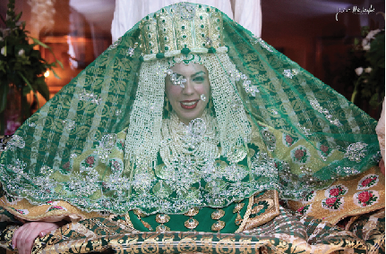 A Moroccan bride
A Moroccan bride Personal notes
When asked what he likes and doesn’t like in Thailand, Mr El Housni replied: “I like the people because they are nice and simple. I like the Thai culture and the food, especially tom yum kung (hot and sour prawn soup). What I don’t like are the traffic jams.”
In order to be on time for an appointment or event the ambassador often gets out of his limousine and travels by motorcycle taxi or BTS (Skytrain). This fits in with his philosophy that an ambassador, besides assuming different tasks and being a negotiator, must also be a simple person. “You should know the people,
how they live, work and go about their daily lives,
” Mr El Housni said.
Asked whether the beaches are better in Thailand or Morocco, Mr El Housni answered diplomatically: “They are all beautiful.” Ms Dryef then jumped in, saying proudly: “One of our beaches was nominated as one of the most beautiful in the world. We have over 10 million tourists visiting Morocco every year.”
In his free time Ambassador El Housni enjoys reading, and also swimming, playing golf and spending time with his family. He also collects antique radios and gramophones that are in working condition. “I have 32 pieces in my collection in Morocco, the oldest made in 1932. I have seen one gramophone here but it wasn’t original or antique. They made it look antique, but you have to look underneath to see the model number and then check the year it was made.”
Final word
“We are the only country in the Maghreb area of Northwest Africa (Morocco, Libya, Algeria, Tunisia and Mauritania) that has an embassy here. This shows how keen Morocco is to have strong relations between our two monarchies and nations.
What about the Arab Spring? “Unlike other countries in our region, Morocco was not thrown into turmoil by the ‘Arab Spring.’ We had a smooth transition after our late King Hassan II passed away 15 years ago. Since then, after the enthronement of HM King Mohammed VI in July 1999, because of hard work and many reforms we weren’t hit by the Arab Spring. Morocco was an exception. Nothing happened there.”
The ambassador then made an interesting analogy: “Every year many people get a flu shot. There is no way of knowing who will catch the flu, but the shot gives you some protection. The reforms undertaken by HM the King of Morocco in the areas of gender equality, human development, setting the unprecedented Equity and Reconciliation Commission, new concept of authority, the establishment of the ombudsman, family law, new constitution and election reforms for example, all impacted the Moroccan society.”
Mr El Housni said he is very happy with his team at the embassy. “We are working in a good environment in a high spirit, without any restrictive protocols with one goal to serve our country and our people. We try to communicate at all times. Anyone can enter my office at any time. Our slogan for this embassy is: ‘The impossible we can do today. Miracles take a little time.’
“As I have said, the excellent relations between the kingdoms of Thailand and Morocco can be translated into concrete programs that can benefit both peoples. Sometimes distance really doesn’t mean so much. We aren’t really too far from each other. We have to work with the Thai people to promote our special relationship. This is my mission. At the same time, we have to defend the interests of Morocco. We are here for the country and our King. Like Thailand, we have a great King and a beautiful country.”
When asked what he likes and doesn’t like in Thailand, Mr El Housni replied: “I like the people because they are nice and simple. I like the Thai culture and the food, especially tom yum kung (hot and sour prawn soup). What I don’t like are the traffic jams.”
In order to be on time for an appointment or event the ambassador often gets out of his limousine and travels by motorcycle taxi or BTS (Skytrain). This fits in with his philosophy that an ambassador, besides assuming different tasks and being a negotiator, must also be a simple person. “You should know the people,
how they live, work and go about their daily lives,
” Mr El Housni said.
Asked whether the beaches are better in Thailand or Morocco, Mr El Housni answered diplomatically: “They are all beautiful.” Ms Dryef then jumped in, saying proudly: “One of our beaches was nominated as one of the most beautiful in the world. We have over 10 million tourists visiting Morocco every year.”
In his free time Ambassador El Housni enjoys reading, and also swimming, playing golf and spending time with his family. He also collects antique radios and gramophones that are in working condition. “I have 32 pieces in my collection in Morocco, the oldest made in 1932. I have seen one gramophone here but it wasn’t original or antique. They made it look antique, but you have to look underneath to see the model number and then check the year it was made.”
Final word
“We are the only country in the Maghreb area of Northwest Africa (Morocco, Libya, Algeria, Tunisia and Mauritania) that has an embassy here. This shows how keen Morocco is to have strong relations between our two monarchies and nations.
What about the Arab Spring? “Unlike other countries in our region, Morocco was not thrown into turmoil by the ‘Arab Spring.’ We had a smooth transition after our late King Hassan II passed away 15 years ago. Since then, after the enthronement of HM King Mohammed VI in July 1999, because of hard work and many reforms we weren’t hit by the Arab Spring. Morocco was an exception. Nothing happened there.”
The ambassador then made an interesting analogy: “Every year many people get a flu shot. There is no way of knowing who will catch the flu, but the shot gives you some protection. The reforms undertaken by HM the King of Morocco in the areas of gender equality, human development, setting the unprecedented Equity and Reconciliation Commission, new concept of authority, the establishment of the ombudsman, family law, new constitution and election reforms for example, all impacted the Moroccan society.”
Mr El Housni said he is very happy with his team at the embassy. “We are working in a good environment in a high spirit, without any restrictive protocols with one goal to serve our country and our people. We try to communicate at all times. Anyone can enter my office at any time. Our slogan for this embassy is: ‘The impossible we can do today. Miracles take a little time.’
“As I have said, the excellent relations between the kingdoms of Thailand and Morocco can be translated into concrete programs that can benefit both peoples. Sometimes distance really doesn’t mean so much. We aren’t really too far from each other. We have to work with the Thai people to promote our special relationship. This is my mission. At the same time, we have to defend the interests of Morocco. We are here for the country and our King. Like Thailand, we have a great King and a beautiful country.”
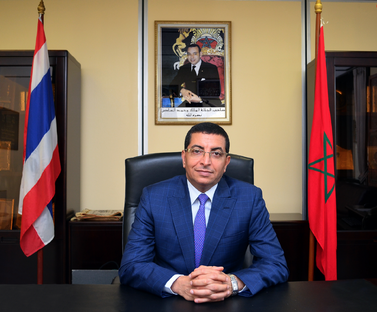
MOROCCO IN BRIEF
The Kingdom of Morocco is situated on the northwest tip of Africa, with the Atlantic Ocean on one side and the Mediterranean Sea on another. Morocco borders Algeria and Mauritania, and Spain and
Europe lie just across the Gibraltar Strait only 14 kilometers away. Morocco operates on Greenwich Mean Time and covers an area of 710,850 square kilometers, with 3,600 km of coastline.
The population of Morocco is about 33 million. Rabat (“Fortified Place” in Arabic) is the capital city with around 1.8 million inhabitants. The most populous city is Casablanca, with approximately four million. Other large cities are Fes, Marrakech, Laayoune, Tangier and Oujda. The official language is Arabic and Tamazight (berber language) but French, Spanish and English are also widely spoken.
Morocco is one of the oldest monarchies in the world, founded in the 8th century by the Idrissides. It is a constitutional monarchy and a multi-party democracy. His Majesty King Mohamed VI has been Head of State since July 30, 1999. The King is undertaking a vast economic and social development program to meet the needs of the new generation by promoting education, good governance, gender equality, employment and poverty reduction.
The Kingdom of Morocco is situated on the northwest tip of Africa, with the Atlantic Ocean on one side and the Mediterranean Sea on another. Morocco borders Algeria and Mauritania, and Spain and
Europe lie just across the Gibraltar Strait only 14 kilometers away. Morocco operates on Greenwich Mean Time and covers an area of 710,850 square kilometers, with 3,600 km of coastline.
The population of Morocco is about 33 million. Rabat (“Fortified Place” in Arabic) is the capital city with around 1.8 million inhabitants. The most populous city is Casablanca, with approximately four million. Other large cities are Fes, Marrakech, Laayoune, Tangier and Oujda. The official language is Arabic and Tamazight (berber language) but French, Spanish and English are also widely spoken.
Morocco is one of the oldest monarchies in the world, founded in the 8th century by the Idrissides. It is a constitutional monarchy and a multi-party democracy. His Majesty King Mohamed VI has been Head of State since July 30, 1999. The King is undertaking a vast economic and social development program to meet the needs of the new generation by promoting education, good governance, gender equality, employment and poverty reduction.

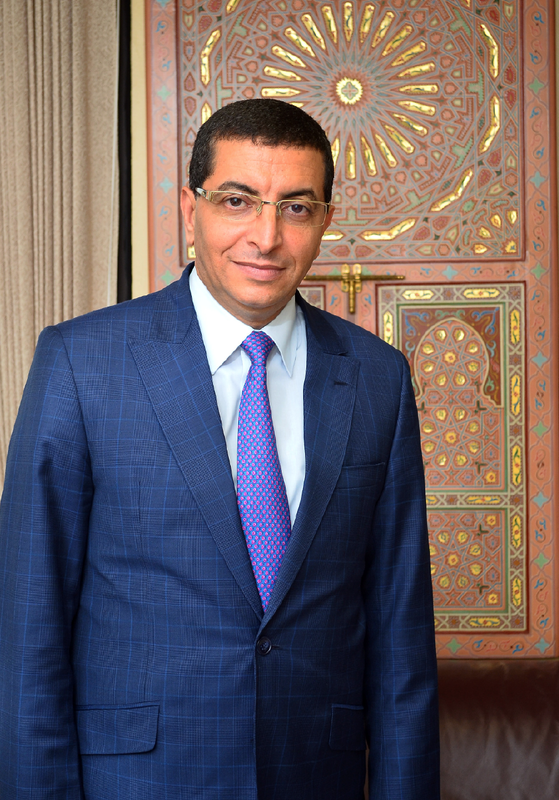
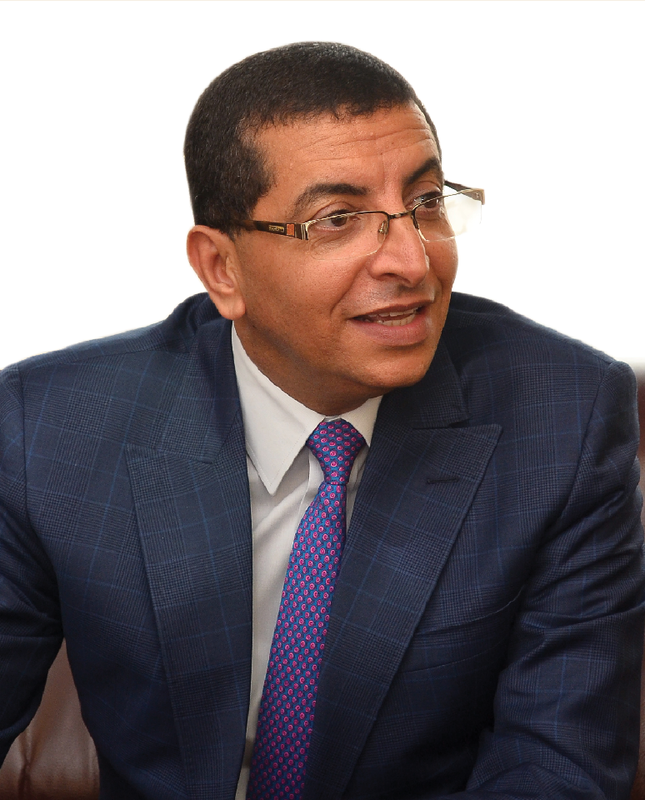
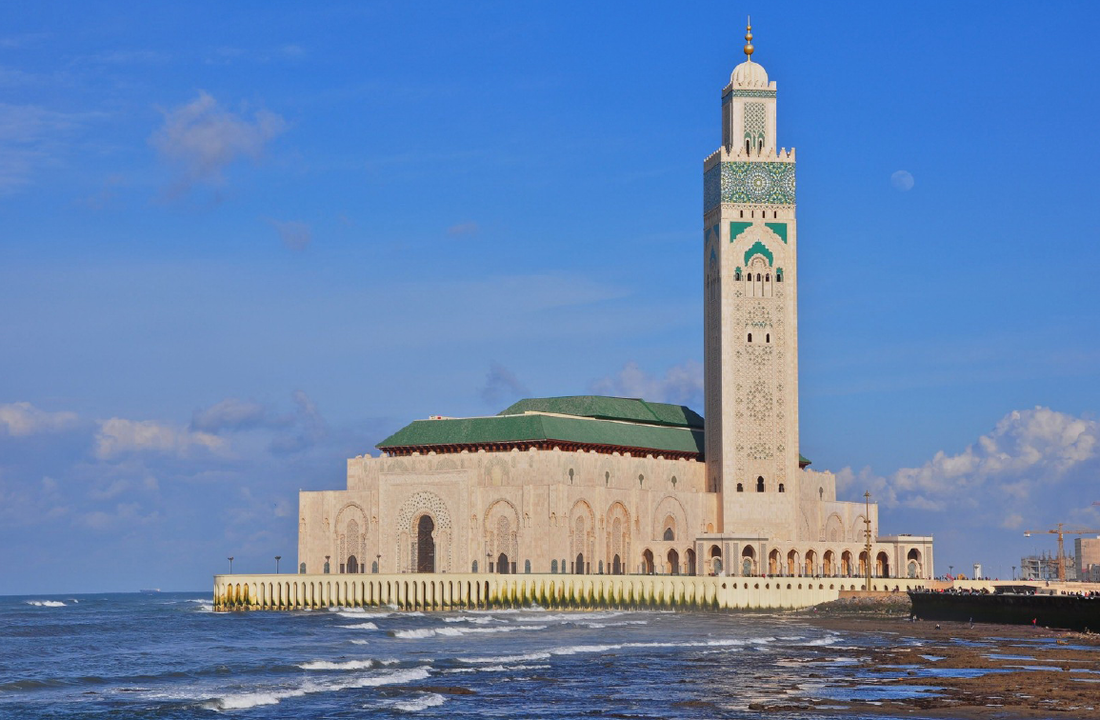
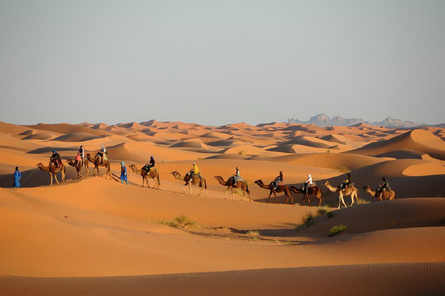
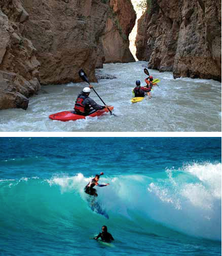
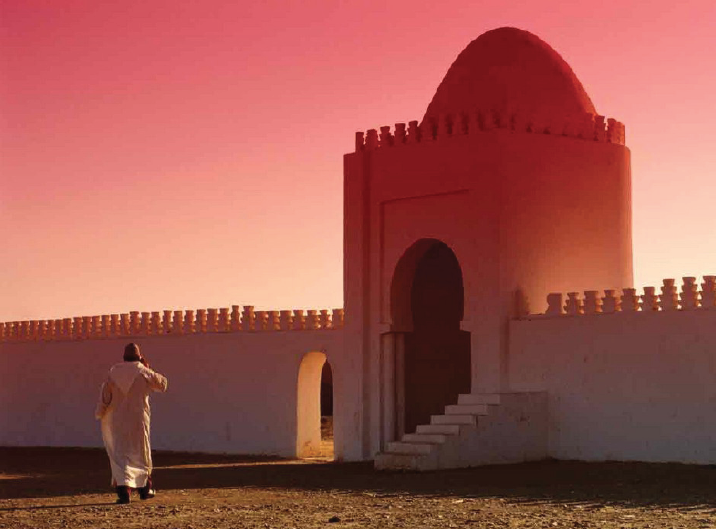
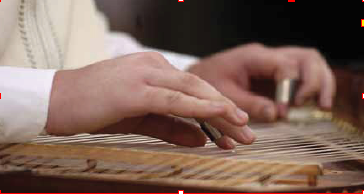
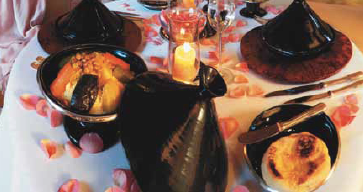
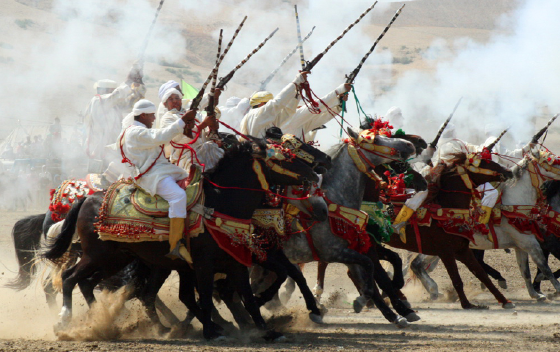
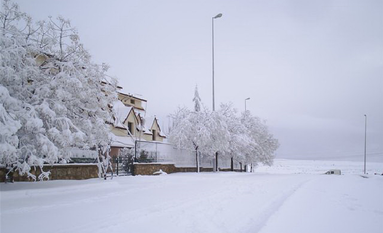
 RSS Feed
RSS Feed
















